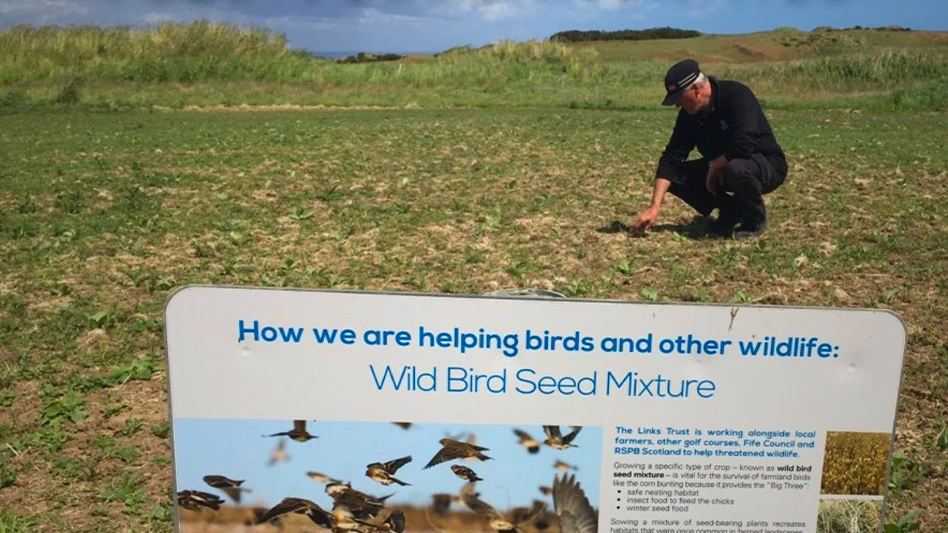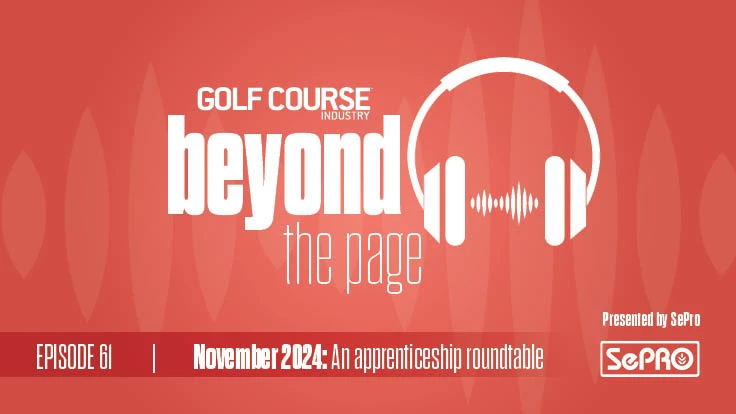Sometimes, you may feel like you are all alone out there, dealing with your own set of problems, challenges, stresses and woes. But, talk to your fellow superintendents and those issues dissipate and resolutions seem clearer.
I’ve been thinking a lot about the state of our industry, specifically how courses and clubs are closing due to financial troubles and being turned into housing communities, office buildings, even water parks. I recently saw that the leadership of one of golf’s key organizations is calling for 1,000 courses to close for the “betterment of the game and the industry.” So, we all have good reason to worry.
While at the Golf Industry Show, I ran into a friend from a high-profile club in South Florida. Looking around the convention floor he commented how much it disturbed him to know that many superintendents come to the show without having a shot in hell (or the money) to buy any of the equipment and other products on display. But rather than just complain, he was doing something about it.
He told me that he gives older or extra equipment and other things to clubs in his area that aren’t as fortunate. For example, his club has him replace the flagsticks every six months: at $80 each, 20 flags, two and maybe three times per year. It’s money his club is happy to spend. So, what does he do with the “old” sticks? He gives them to his friend, a super down the street at a daily-fee facility that in a good year can only afford to change flagsticks once.
Which got me thinking: Are we, as a profession, sharing enough?
Yes, we’re quick to send our staff to “volunteer” at major tournaments, but to what end? Does this help our individual courses? Are we getting much more than some bragging rights? Yes, assistants and crew might gain some experience and enhance their networks, but at the end of the week, they come home and unless “home” is a club with money and the chance to host its own big events, how much good does that experience do? And fact is, the host course will be perfectly fine with or without our laborers pitching in.
No, if we really want to share — and I think we should, all of us, whatever we can spare — we need to find ways to help those clubs and superintendents who aren’t as fortunate as we are. And I’m really calling out the top clubs, those that are the most affluent and prestigious, to give back or pay it forward or whatever you want to call it. They, most of all, should practice some “trickle-down” economics and help others.
If you have equipment that’s being replaced, not in a lease package, and the manufacturer or distributor won’t take it back, consider giving it to another club. This small gesture could significantly upgrade another course’s maintenance practices and arsenal of tools.
Understand, this is not charity. Superintendents are a proud bunch and take great pride in doing the best they can with the resources they have.
This is about camaraderie and support, helping a fellow superintendent who, face it, isn’t as lucky as you are. And who really benefits? The golfer and, ultimately, the whole game. If the patron of that daily-fee down the street has a better experience because the fairways or the greens are better conditioned, maybe he’ll play a little more and maybe consider joining the private club. What trickles down can also move up the ladder.
Giving an extra piece of equipment, a case of fungicide, a bag of fertilizer, or some extra bunker rakes and ball washers to another club can help them look better, play better, and feel better about its place in the industry. Also, you’ve probably helped a fellow superintendent, and you never know if his/her job is in peril. One gesture can go a long way.
And something else. I’m not talking about emergency support after some sort of disaster, natural or manmade. This is about day-to-day assistance, unpublicized giving back to your friend, your community, your industry. Quietly helping someone so both parties feel better.
Other parts of the golf business already give back. We’re all quick to give old clubs, bags, balls, even shoes to beginners and junior programs. Many clubs hire underprivileged kids to work in cart storage and dining rooms, introducing them to a game—and a world— they might otherwise never see. And we’re all aware how much money the pro tours give to charities and they certainly aren’t modest about it.
Well, I’m asking you to do this and be very modest about it.
It must start with superintendents at the bigger, wealthier clubs, who need to lead by example. Look around the maintenance facility and ask yourself if that older mower, aerifier, sprayer or trailer is ever going to be used or can it help someone else? And you don’t have to give away anything: How about lending a stump grinder or wood chipper to a neighboring club? It could save your fellow super a good amount of money.
At regional, district, or state association meetings, let other attendees know what you have or what you need, be it a spray tank, a greens mower, an aerifier, even a flagstick.
As for you guys working at smaller clubs, do not think of this as taking a hand out. View this as an opportunity to re-allocate your smaller budget to the greater benefit of your course and your members, customers, and guests.
Furthermore, don’t be afraid to tap into your distributor network. There may be damaged packaging that the manufacturer won’t take back. Tell your rep that you’re always willing to pay a reduced price for slightly worn products. Stretch your budget and your connections.
Note to manufacturers, distributors, and salespeople: You know which are the wealthier clubs and which are having a harder time getting by. There’s a lot you can do to help clubs with smaller budgets.
Our survival as a fragile industry is dependent on staying together, staying connected and helping one another wherever possible. We need to realize that our job isn’t just taking care of our course, it’s also helping others in the business.
Those of you who can use a hand need to think of it not as charity but as assistance and an investment someone else is making in you, your club, and the game. Don’t waste an opportunity.
So, let’s wave the flag and help one another. We all benefit when we work together and help one another.

Explore the March 2017 Issue
Check out more from this issue and find your next story to read.
Latest from Golf Course Industry
- Making the grade — at or near grade
- PBI-Gordon receives local business honor
- Florida's Windsor takes environmental step
- GCSAA names Grassroots Ambassador Leadership Award winners
- Turf & Soil Diagnostics promotes Duane Otto to president
- Reel Turf Techs: Ben Herberger
- Brian Costello elected ASGCA president
- The Aquatrols Company story





